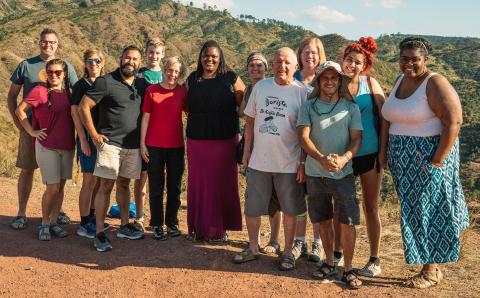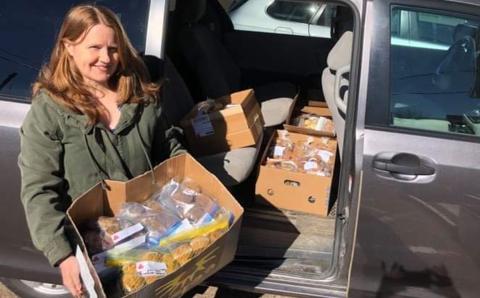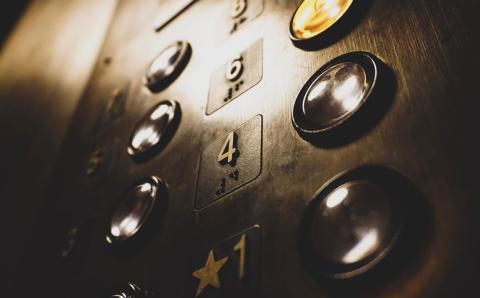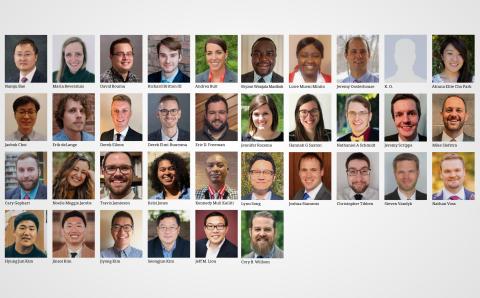Protests, vandalized cities, and clashes with law enforcement trying to reestablish order are affecting many Americans after the death of George Floyd last Monday in Minneapolis, Minn. How does it affect churches ministering in these cities? The Banner talked to pastors in three Christian Reformed churches near Minneapolis.
Nick Van Beek is a pastor at Calvary CRC in Edina, Minn., right on the edge of the city of Minneapolis. On Friday he posted “A Psalm for George, a devotional video on Psalm 82.” The psalms, he said, “are our model for worship and for prayer,” so they can help “as we seek for a way to cry out for justice … to figure out what to do with our anger and our sadness about all of this.”
Van Beek told The Banner his congregation includes people living or working in the city of Minneapolis, whose “world has been turned inside out” and it includes those within the affluent suburb of Edina who are more removed and reluctant to engage, “content to just let the city handle it and we’ll see what happens.”
Van Beek said that in a Zoom (online video platform) conversation on Sunday night, parishioners acknowledged that “we’re struggling to know what to do with our sadness and our anger, and our indifference.”
He said he’s trying to listen to his congregants—his email inbox was flooded Monday morning with dozens of ideas about how the church should be responding, both in short-term relief and longer-term community transformation.
“Relief is a start, but I think it’s clear to many in my congregation that the role of the church goes beyond relief, especially when something so dramatic and tragic happens in our city. ... I imagine that this will manifest itself in the trajectory of our ministry.”
Asked by one of his congregants to help the church start with lament, Van Beek put together a 25-minute video service, posted Monday night that included three church members reading psalms and praying, in one case directly from the streets of Minneapolis.
Arlan Koppendrayer, pastor of the emerging Christian Reformed congregation Trinity Hill Church, in Chanhassen, Minn., said a number of people are very shaken by the rioting, and pastorally he’s ministering to people who “are at the end of their nerves.” He said it’s all the more difficult since he is not able to visit these people, because entering separate households is against public health rules to prevent the spread of COVID-19.
While his congregation is conducting services on Facebook live, they try to cultivate a more personal connection time in Sunday evening Zoom meetings.
“We really encourage people to take part in that,” he said, noting that the unstructured time of sharing is always followed by prayer. This past Sunday, he said, “they wanted to pray for Minneapolis, they wanted to pray for the Twin Cities, they wanted to pray for people that they know in the cities, and it was just a very intentional, desired prayer time. … It was quite something.”
Looking ahead Koppendrayer said there will be conversations at Trinity Hill about what it means to live in a multi-racial society. “We just have to talk about the fact that to be white in America is different than being black in America, and let’s not pretend that it’s not.”
He initiated that conversation with a video on the church’s Facebook page Friday night, saying “we have to examine our own history; … examine our hearts; … pray for Minneapolis and St. Paul … and commit ourselves to success,” loving one another, because “love never fails.”
Pastor Perrin Werner of Grace CRC in Inver Grove Heights, Minn., ministers in a context that is “the most diverse church that I have been a part of—academically, racially, financially, even politically—and it's also the most tight knit.”
On Saturday, he made phone calls to people he knew would be affected based on where they lived or worked, and he encountered raw feelings.
To many, the events feel “personal, impactful, infuriating, and scary, and there’s a fair amount of powerlessness in what we can do,” Werner told The Banner. He said, “It’s a fluid environment, and we’re trying to figure out how best we can minister to the different contexts.”
One family, who lives within the city, has worked to clean up the streets on several mornings. Werner, who had been a member of the National Guard until November 2019, gathered help from some other pastors to put together a care package for soldiers deployed to Minneapolis.
“It’s tough,” Werner said. “The protestors need a voice, they absolutely need a voice, and it’s hard because the voice, I think, is being obscured by the riots. So how do we allow peaceful protests and hear what that community has to say and, at the same time, we’re bringing in extra law enforcement and the National Guard, and it just feels like an escalation in some ways.”
“Nothing is easy about this,” Werner said. He noted that there is likely a risk of further spread of COVID-19 because of the movement of people, including the National Guard, and how close people are getting in the streets.
Dan Crapo, a CRC chaplain who works at the Mayo Clinic in Red Wing, Minn., and his wife, Ruthanne Crapo Kim, who teaches philosophy at Minneapolis College, are members of Grace CRC. Dan shared his recent experiences of living through this time with Chris Meehan at CRC Communications.
About the Author
Alissa Vernon is the news editor for The Banner.








